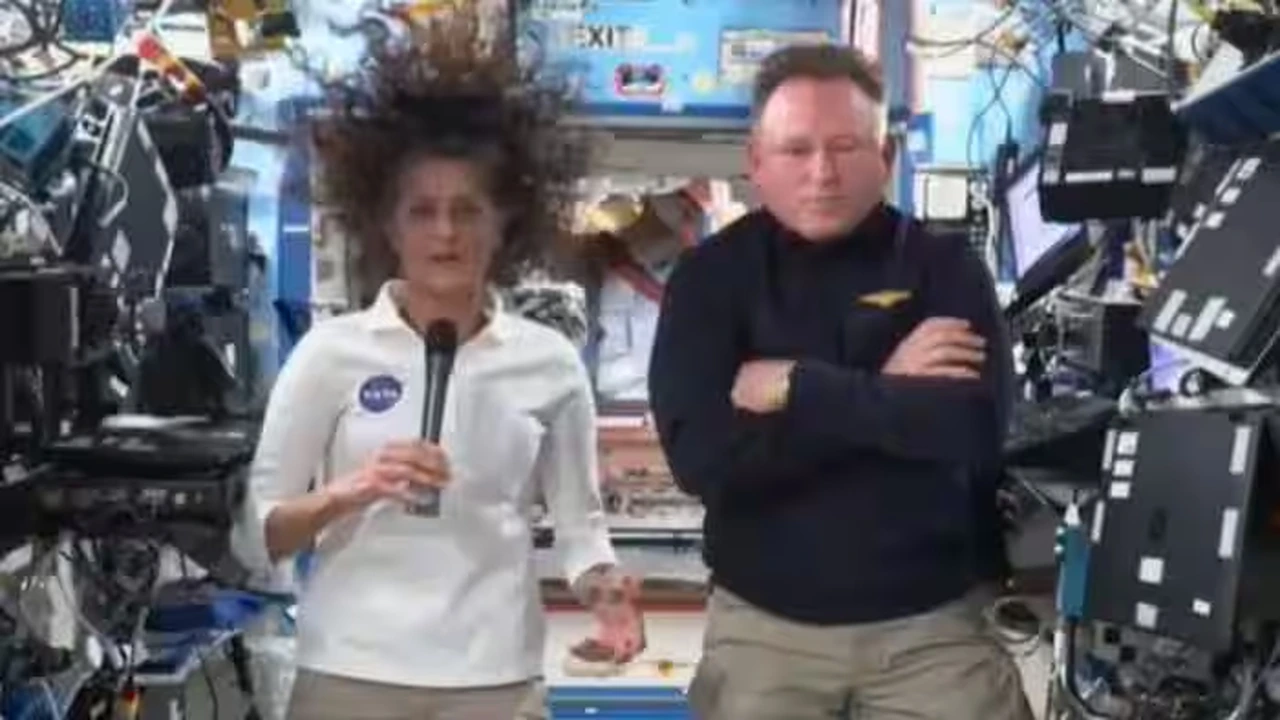Sunita Williams Calls Space Her 'Happy Place': Astronauts Eager to Vote in US Presidential Elections
Sunita Williams Calls Space Her 'Happy Place': Astronauts Eager to Vote in US Presidential Elections
Blog Article
 Sunita Williams Calls Space Her 'Happy Place': Astronauts Eager to Vote in US Presidential Elections[/caption]
Sunita Williams Calls Space Her 'Happy Place': Astronauts Eager to Vote in US Presidential Elections[/caption]
Sunita Williams Calls Space Her 'Happy Place': Astronauts Eager to Vote in US Presidential Elections
Introduction: Space as a 'Happy Place'
Bet Casinos - In the sprawling entertainment city Sunita Williams Calls of cosmic exploration, few stories capture the imagination quite like that of Sunita Williams. The astronaut has long been celebrated for her remarkable achievements and her deep connection with space. Recently, Williams has described space as her "happy place," a testament to her profound bond with the cosmos. As the US Presidential elections approach, Williams and her fellow astronauts face a unique challenge: casting their votes while orbiting the Earth. This article explores Williams' sentiment about space, the logistical challenges faced by astronauts in voting, and the broader implications for space travel and democracy Birthday Bonus.
Sunita Williams: Space as a Sanctuary
A Stellar Career
Sunita Williams, an accomplished astronaut and engineer, has made significant contributions to space exploration. Her career highlights include multiple spaceflights, extensive time aboard the International Space Station (ISS), and a commitment to advancing space science. Williams' experiences have shaped her view of space not just as a professional environment but as a personal sanctuary.
Space as a 'Happy Place'
Williams’ description of space as her "happy place" reflects a deep emotional connection. For her, the vast expanse of space represents a realm of tranquility and fulfillment. This sentiment is not merely poetic but underscores the psychological impact of space travel on astronauts. Being in space provides a unique perspective and a sense of awe that profoundly influences their well-being.
The Challenge of Voting from Orbit
Logistical Hurdles
As the US Presidential elections draw near, astronauts like Williams face the challenge of participating Entertainment City in the democratic process from space. Voting while in orbit involves navigating a complex system of logistical hurdles. Astronauts must coordinate with various agencies to ensure their ballots are cast and counted correctly. This process highlights the intersection of space travel and civic duties, illustrating the commitment of astronauts to their country even while they are thousands of miles away.
Ensuring Fair Representation
The ability to vote from space underscores the importance of maintaining democratic rights regardless of one’s location. NASA and other space agencies work diligently to ensure that astronauts can participate in elections, emphasizing the value of their contributions and their role as active citizens. This effort ensures that even those who are in the most remote environments can exercise their democratic rights.
The Broader Implications of Space Voting
Symbolic Significance
The act of voting from space carries significant symbolic weight. It represents the idea that no matter where individuals are—whether on Earth or beyond—they remain integral to the democratic process. This symbolism extends to the broader public, reinforcing the notion that every vote counts and that democracy transcends physical boundaries.
The Impact on Space Exploration
Psychological Well-Being
For astronauts, the experience of being in space extends beyond physical challenges; it includes psychological aspects as well. Williams’ reference to space as her "happy place" illustrates the positive psychological impact that a fulfilling and purposeful environment can have. This well-being is crucial for the success of long-duration missions and the overall health of space travelers.
Public Perception
The public’s perception of space missions is often shaped by stories like Williams’. App Download Her positive outlook on space and her dedication to both her profession and her country enhance the public’s understanding and appreciation of space exploration. These narratives contribute to the broader excitement and support for space missions, influencing future generations and inspiring new interests in space science. Report this page